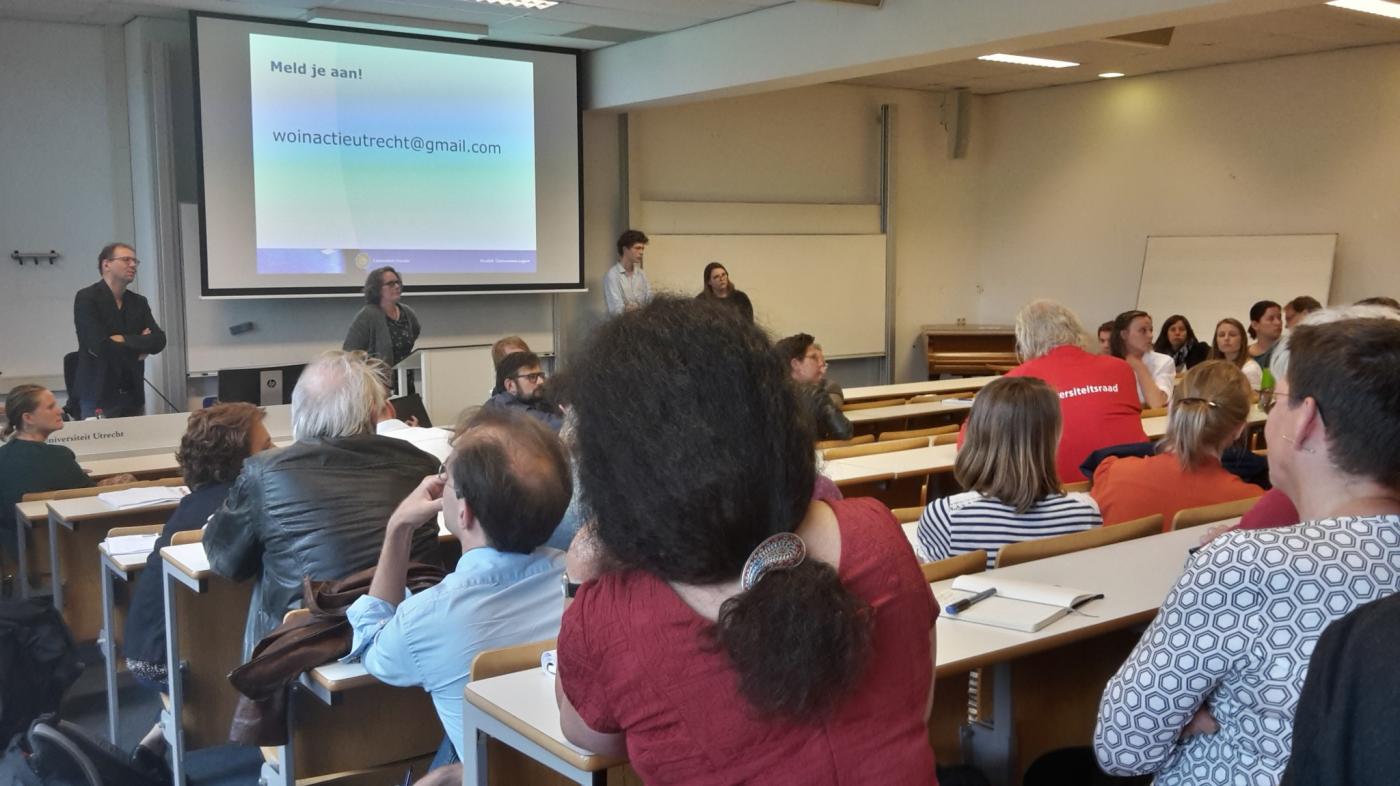Utrecht warming up for WOinactie protests

They might start with harmless, fun things like open-air classes, but might move on to punctionality protests or even actual strikes. That’s what’s coming to Dutch higher education, if minister Van Engelshoven continues to ignore an ultimatum set by WOinactie.
In a classroom at the Kromme Nieuwegracht, Amsterdam professor Rens Bod, who’s one of the people behind the initiative, explained to a crowd of around eighty teachers and students why a joint message sent to The Hague is important.
Bod travelled around the college towns in the Netherlands to get people outside of Amsterdam willing to protest. “Partially, we owe these problems to ourselves. We’re not loud enough.”
Bod says the efficiency cuts that have been announced are unacceptable, considering the enormous workloads in higher education. A minimum of one billion euros of investments is necessary. “At this moment we’re not getting more money, like we asked; we’re getting even less.”
In Utrecht, ethics professor Ingrid Robeyns spent the past few years acting as important spokesperson for the dissatisfaction about the continuously increasing workload. “We’re doing our research on our days off,” she said a few months ago in TV show Buitenhof.
Robeyns showed the crowd the numbers from the plan the UU’s presented to battle workloads. They show over half of the UU’s scientific staff feels the workloads are too high. In contract employees who combine research with teaching, it’s above 70 percent. Employees at the faculty of Humanities were by far the most negative. “The worst thing is that other people aren’t getting jobs, because we’re being forced to do all that extra work.”
Bod said he assumed Robeyns, along with history professors Annelien de Dijn and Tine de Moor will lead the WOinactie protests in Utrecht. Robeyns seemed to accept the role, albeit hesitantly, although she has ‘little prehistoric experience in activism’.
In the week after Prinsjesdag, which falls on September 18th this year, teachers are to hold their classes on the streets, in parks, or on public squares. In time, ‘white strikes’ may follow. That’s when teachers aren’t working a minute longer than their contracts say. Real strikes are at the bottom of the list; Dutch scientists aren’t fond of them.
Robeyns will get help. Activism seems to come a lot more naturally to the history students of ZegNee. They’ve been protesting for the past months against the cutbacks at the faculty of Humanities, and recently towed to The Hague to hand over a petition. On June 27th, the students are planning to hold a twelve-hour class marathon, to highlight the shortages in higher education.
Student Nina van der Bent: “The system is wrong, the whole thing’s broken. This is the moment to do something about it (…) and that’s not scary, it’s not complicated, and it doesn’t instantly make you a leftist radical.”
The next WOinactie meeting in Utrecht is scheduled to happen before the summer holidays. Preferably in De Uithof, to prevent the actions from being seen as Humanities-only. “If it’s up to me, I’ll hold my open-air class in one of the stables at Veterinary Science,” professor Ido de Haan said.
The next meeting will take place on June 22nd at 11.00 am in the Ruppert building. (Ruppert Paars)
Translation: Indra Spronk